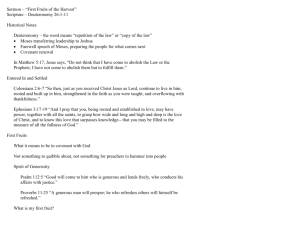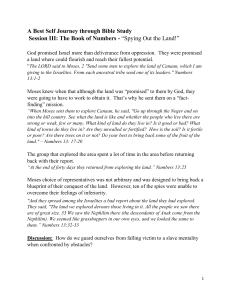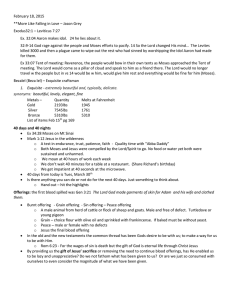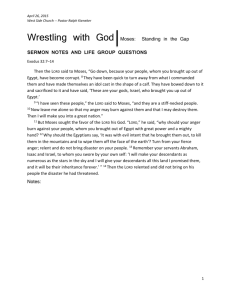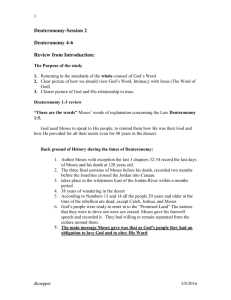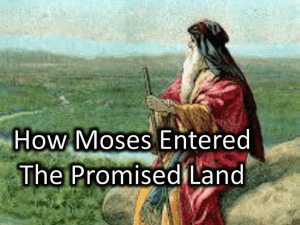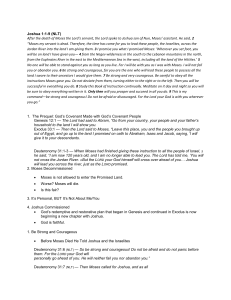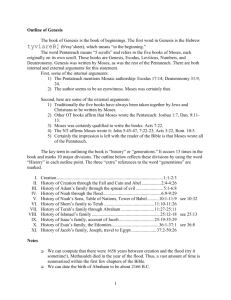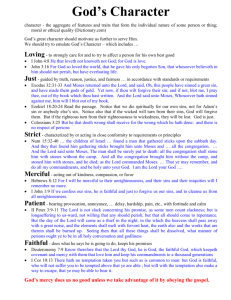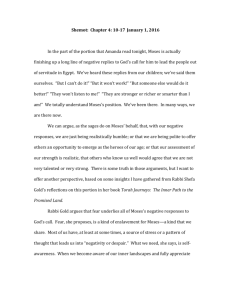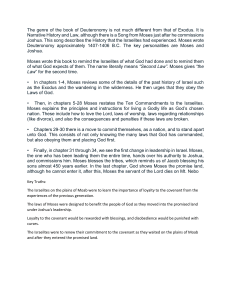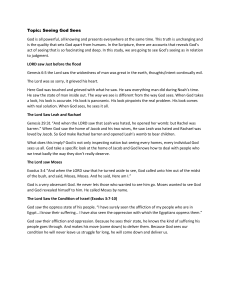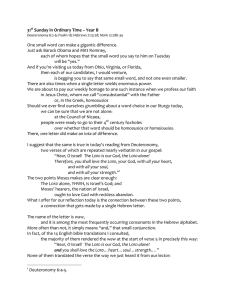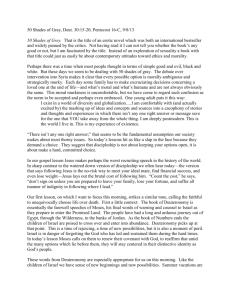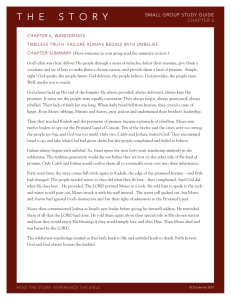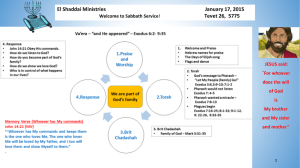DEUTERONOMY – Moses' farewell speech to his people
advertisement
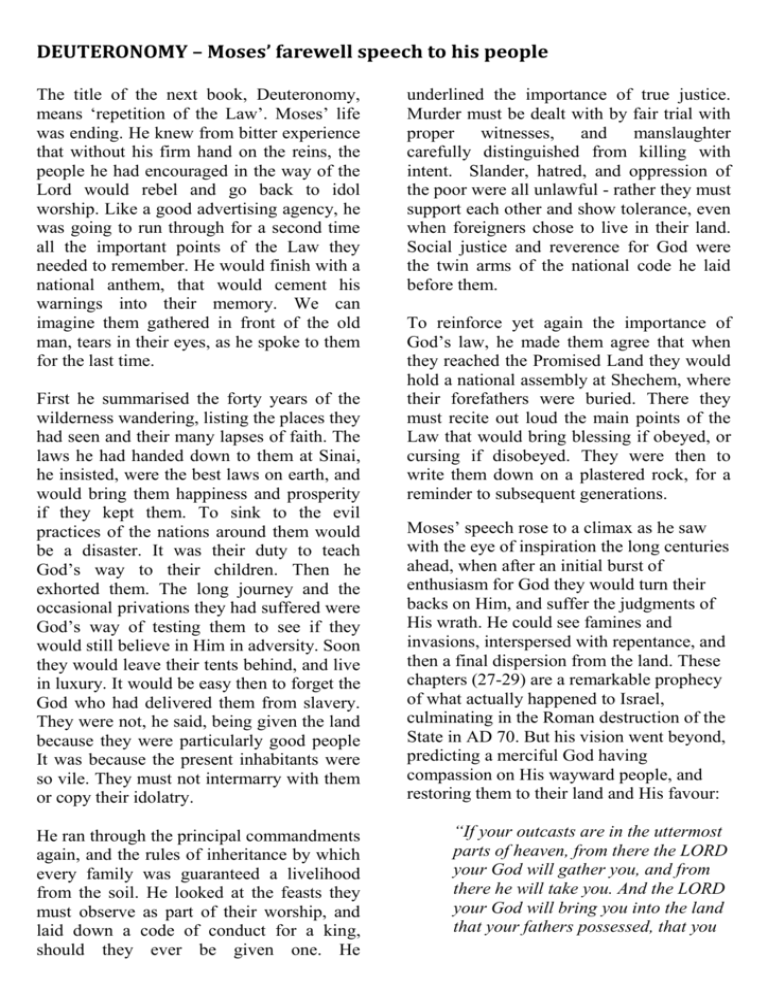
DEUTERONOMY – Moses’ farewell speech to his people The title of the next book, Deuteronomy, means ‘repetition of the Law’. Moses’ life was ending. He knew from bitter experience that without his firm hand on the reins, the people he had encouraged in the way of the Lord would rebel and go back to idol worship. Like a good advertising agency, he was going to run through for a second time all the important points of the Law they needed to remember. He would finish with a national anthem, that would cement his warnings into their memory. We can imagine them gathered in front of the old man, tears in their eyes, as he spoke to them for the last time. First he summarised the forty years of the wilderness wandering, listing the places they had seen and their many lapses of faith. The laws he had handed down to them at Sinai, he insisted, were the best laws on earth, and would bring them happiness and prosperity if they kept them. To sink to the evil practices of the nations around them would be a disaster. It was their duty to teach God’s way to their children. Then he exhorted them. The long journey and the occasional privations they had suffered were God’s way of testing them to see if they would still believe in Him in adversity. Soon they would leave their tents behind, and live in luxury. It would be easy then to forget the God who had delivered them from slavery. They were not, he said, being given the land because they were particularly good people It was because the present inhabitants were so vile. They must not intermarry with them or copy their idolatry. He ran through the principal commandments again, and the rules of inheritance by which every family was guaranteed a livelihood from the soil. He looked at the feasts they must observe as part of their worship, and laid down a code of conduct for a king, should they ever be given one. He underlined the importance of true justice. Murder must be dealt with by fair trial with proper witnesses, and manslaughter carefully distinguished from killing with intent. Slander, hatred, and oppression of the poor were all unlawful - rather they must support each other and show tolerance, even when foreigners chose to live in their land. Social justice and reverence for God were the twin arms of the national code he laid before them. To reinforce yet again the importance of God’s law, he made them agree that when they reached the Promised Land they would hold a national assembly at Shechem, where their forefathers were buried. There they must recite out loud the main points of the Law that would bring blessing if obeyed, or cursing if disobeyed. They were then to write them down on a plastered rock, for a reminder to subsequent generations. Moses’ speech rose to a climax as he saw with the eye of inspiration the long centuries ahead, when after an initial burst of enthusiasm for God they would turn their backs on Him, and suffer the judgments of His wrath. He could see famines and invasions, interspersed with repentance, and then a final dispersion from the land. These chapters (27-29) are a remarkable prophecy of what actually happened to Israel, culminating in the Roman destruction of the State in AD 70. But his vision went beyond, predicting a merciful God having compassion on His wayward people, and restoring them to their land and His favour: “If your outcasts are in the uttermost parts of heaven, from there the LORD your God will gather you, and from there he will take you. And the LORD your God will bring you into the land that your fathers possessed, that you may possess it ...” Deuteronomy 30:4, 5 We have seen the beginning of this restoration in the last 100 years. Finally, the aged leader wrote a copy of the Law in his own hand and delivered it to the priests as an archive to be preserved. His last words to the people, at the advanced age of 120 years, comprised his great Song about God, which they were encouraged to memorise and teach their descendants. This was followed by a one-by-one prophetic blessing of each of the 12 tribal groups. Then, after many sad farewells, Moses climbed alone into Mount Nebo, where he was permitted briefly, perhaps on a day of startling atmospheric clarity, to see for the first and last time, the whole land God had promised to Abraham, from faraway Lebanon to the Mediterranean Sea. Then he sank into the long sleep of death, from which he will awake on the day of glory. © Copyright David Pearce, used with permission.
